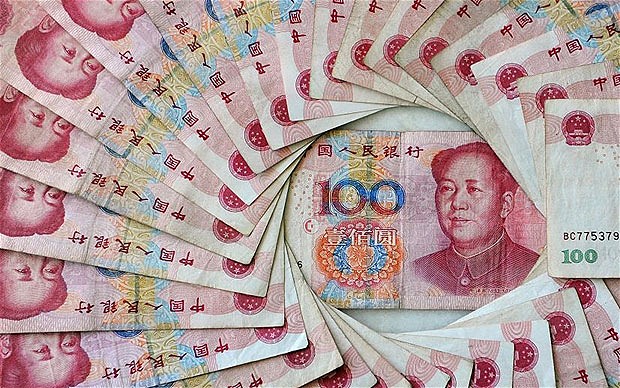BEIJING, Aug. 25 (Xinhua) — As Uber and Airbnb expand in China, homegrown online ventures are already taking a slice of the growing sharing economy.
Chen Chi, chief executive officer of the short-term home-rental site Xiaozhu.com, shrugged off the competition Airbnb might bring when the apartment-sharing service announced last Wednesday that it planned to enter the China market.
Instead of treating Airbnb as a threat to emerging short-term rental firms such as Xiaozhu and Tujia, Chen welcomes the development as an opportunity for China to embrace the sharing economy.
An increasing number of Internet startups in China are profiting by sharing access to resources that they do not actually own, from home rentals to car pooling to catering.
“Airbnb has recognized how fast the sharing economy is growing in China,” Chen said.
MORE FOR LESS
At its core, the sharing economy brings together excess capacity of products or services to “share” them. Uber and Didi take advantage of the fact that individually owned cars spend a lot of time parked up, going nowhere. Airbnb and Xiaozhu rent out rooms when the owners are not staying in them.
The sharing economy in China has already gone far beyond car pooling and home rentals. Renren Delivery, for example, connects demand for package deliveries with “freelance” couriers. Anyone can earn a fee by picking up a package and carrying it to its destination.
Knowledge can be shared too. Zaih.com, launched this year, tries to connect people with expertise — whether in art, science or lifestyle — with people seeking advice. Those in need of professional help can click a button, schedule a face-to-face meeting with experts, and pay them a fee of about 50 U.S. dollars for a consultation.
Capital can work the same way. Peer-to-peer (P2P) lending connects individuals and small businesses who need money directly to investors with cash to spare; essentially, access to idle funds.
According to research agency 01caijing, P2P in China expanded 172 percent to 300 billion yuan (47 billion U.S. dollars) in 2014, with more than 1,500 market players similar to Lending Club in the United States or Zopa in the United Kingdom.
“The sharing economy is revolutionizing many sectors in China,” said venture capitalist Li Xiao, a founder of Joy Capital, the firm that led a 60-million-U.S.-dollar round of financing for Xiaozhu. “And it’s still accelerating.”
CHANGING ENVIRONMENT
When Xiaozhu started out in 2012, many questioned whether the Airbnb model would prosper in China. The doubters said the Chinese would never feel comfortable with strangers in their homes.
But Chen Chi was not deterred and after two years, Xiaozhu’s profits have increased dramatically, with six time more transactions so far this year than last year.
Better individual credit reporting has helped build trust, the very foundation of sharing, Chen said.
Individual credit checks have never been a significant factor in evaluating credit worthiness in China. Before this year, the country had only one recognized credit bureau, an institution under the country’s central bank.
With the growth of Internet finance, however, big players such as Alibaba and JD.com are very interested in personal credit reporting. Alibaba’s Ant Financial launched credit scoring service Sesame Credit in January while rival JD.com partnered with U.S. firm ZestFinance in June to provide similar services.
According to Li Xiao, culture is simply becoming more socialized. There was a time when everyone wanted standard products, Li said, but as the economy grows, people crave something different: a conversation with an insightful taxi driver, for example, or a meal specially cooked to individual requirements.
Chen Chi himself is a Xiaozhu host. In the last three years, his guests have included a young student back from studying abroad, a music lover who gave up everything in the pursuit of stardom, and an elderly woman who offered to wash his clothes. Hosting taught him things about the world that he would never have learned through his immediate social circle.
“When we talk about the sharing economy, we always focus on the economy side, but it also contains the sharing part — that is, being kind to strangers,” he said. “I’m addicted to it.”
REGULATORY UNCERTAINTY
While the sharing economy is good for entrepreneurs, it threatens many industry incumbents, which puts pressure on authorities to regulate.
Executives of ride-sharing services Uber China, Didi, and Kuaidi have been summoned by authorities many times in the past few months to discuss the legality of their operations without taxi licenses.
Regulation of lodging-sharing services in China is even more opaque. Companies like Xiaozhu are operating in a gray area in which there are no rules specifying how hosts pay taxes on what they earn — so they simply don’t pay.
“Technology always outpaces regulation. Even abroad, regulations are still evolving,” Li Xiao said, “but I think everyone supports things that are fundamentally good for society.”
After a meeting in July, Chinese leaders declared that the country’s Internet Plus strategy of integrating online business models with traditional industries meant it needed to be made easier for people to launch online enterprises. While the authorities are still figuring out how to handle the sharing economy, Chen Chi is confident that Xiaozhu et al will grow, just like their foreign counterparts.
“Airbnb has been around for eight years and Xiaozhu for just three. It’s only a matter of time,” he said. Enditem



